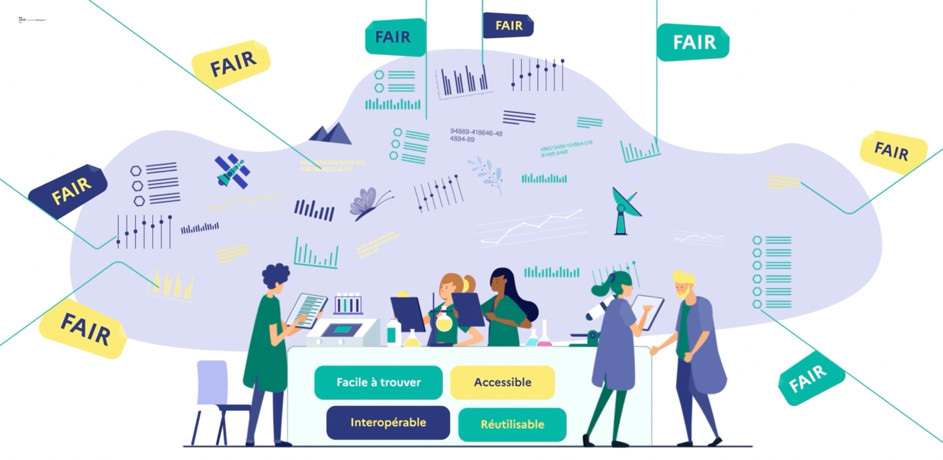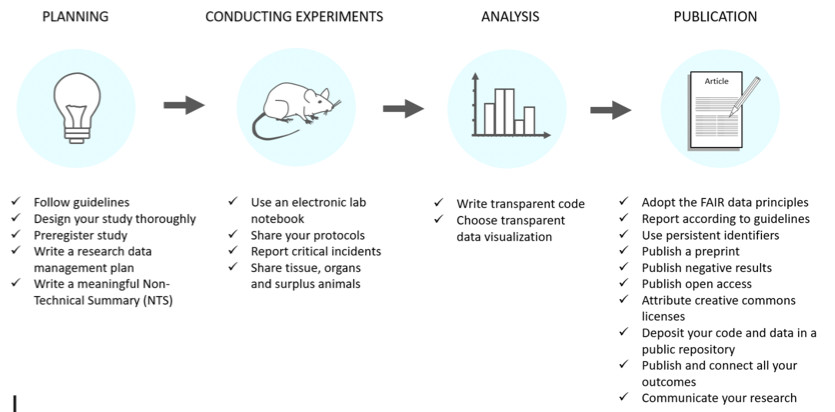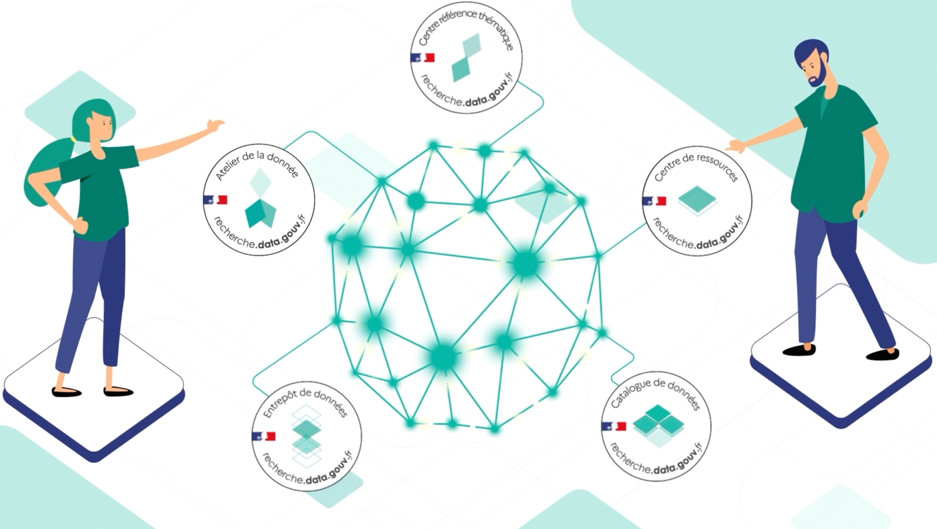Opening up science ?
Research results are traditionally disseminated in the form of articles published in scientific journals, most of which are paid for, even though the work that led to them was publicly funded. The "open science" movement proposes to make the results of scientific research accessible to all - researchers, companies and citizens - without barrier, without delay and for free.
Several solutions already exist to allow researchers to give free access to their work, such as Open Access publication, deposit in open archives (e.g. HAL, OPUS) or pre-publication.
However, research institutions willing to make a transition to open science encounter economic obstacles (Open Access publication fees are generally paid by the authors) but also
a moral problem, since the journals with the highest impact factors do not necessarily offer the possibility of open access publication.
National plan for international will
In line with the European « Amsterdam call for action » and with the idea of encouraging and accompanying its researchers in the free dissemination of publications and research data, France has a "National Plan for Open Science" since 2018. It leverages digital tools to develop open access to publications and - as much as possible/more generally - to research data, source codes and methods.
This program has already led to an increase from 41% to 56% of open access French publications since 2018. It also initiated the creation of a National Fund for Open Science, which has launched two calls for projects in favor of open scientific publication and supported structuring international initiatives. The ANR, Horizon Europe and other funding agencies now require open access publications and data management plans for the projects they fund.
Renewed until 2024, this national plan aims to generalize open access to all French publications to reach 100% by 2030, as well as to structure, share and open more widely the data and source codes of research. To these aims, a new federated national platform of research data has been created : Recherche Data Gouv.
The Recherche Data Gouv platform
Recherche Data Gouv offers a certified digital infrastructure for the deposit, management, structuring and dissemination of research data - published or not - in a "FAIR" (easy to Find, Accessible, Interoperable, Reusable) form, thanks to the attribution of a unique perennial identifier (e.g. a DOI)

Institutional spaces can be created on the Recherche Data Gouv platform at the request of French research institutions : this is already the case for Inrae - which is actively participating in the development of the platform's repository and catalog - as well as many universities.
Recherche Data Gouv also provides research teams with a complete support system : local "data workshops", national reference centers by theme, and resource banks (online services, teaching aids, shared training, etc.).
Research Data Gouv aspires to become a service of the European Open Science Cloud (EOSC), which - like its American counterpart COS - offers access to the heritage of shared and open research data to promote their reuse for research, innovation or education.
Open science, integrity and the 3Rs
By offering free access to research results, the open science movement democratizes access to knowledge, while responding to the need to homogenize, structure and make scientific data available. Opening up science and making it more transparent also allows it to gain in speed, reproducibility and robustness, to avoid the useless repetition of experiments already carried out by others, notably in the case of animal experimentation, and thus to make it more ethical and more respectful of the 3Rs principle (Replace, Reduce, Refine).



